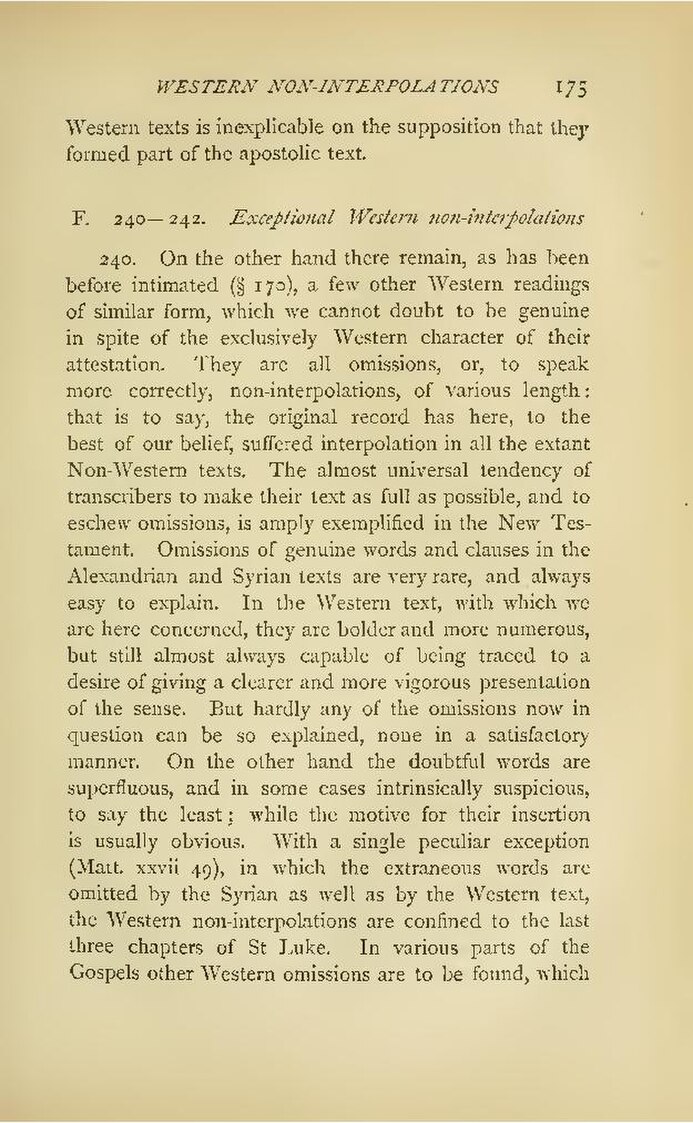Western texts is inexplicable on the supposition that they formed part of the apostolic text.
F. 240—242. Exceptional Western non-interpolations
240. On the other hand there remain, as has been before intimated (§ 170), a few other Western readings of similar form, which we cannot doubt to be genuine in spite of the exclusively Western character of their attestation. They are all omissions, or, to speak more correctly, non-interpolations, of various length: that is to say, the original record has here, to the best of our belief, suffered interpolation in all the extant Non-Western texts. The almost universal tendency of transcribers to make their text as full as possible, and to eschew omissions, is amply exemplified in the New Testament. Omissions of genuine words and clauses in the Alexandrian and Syrian texts are very rare, and always easy to explain. In the Western text, with which we are here concerned, they are bolder and more numerous, but still almost always capable of being traced to a desire of giving a clearer and more vigorous presentation of the sense. But hardly any of the omissions now in question can be so explained, none in a satisfactory manner. On the other hand the doubtful words are superfluous, and in some cases intrinsically suspicious, to say the least; while the motive for their insertion is usually obvious. With a single peculiar exception (Matt. xxvii 49), in which the extraneous words are omitted by the Syrian as well as by the Western text, the Western non-interpolations are confined to the last three chapters of St Luke. In various parts of the Gospels other Western omissions are to be found, which
